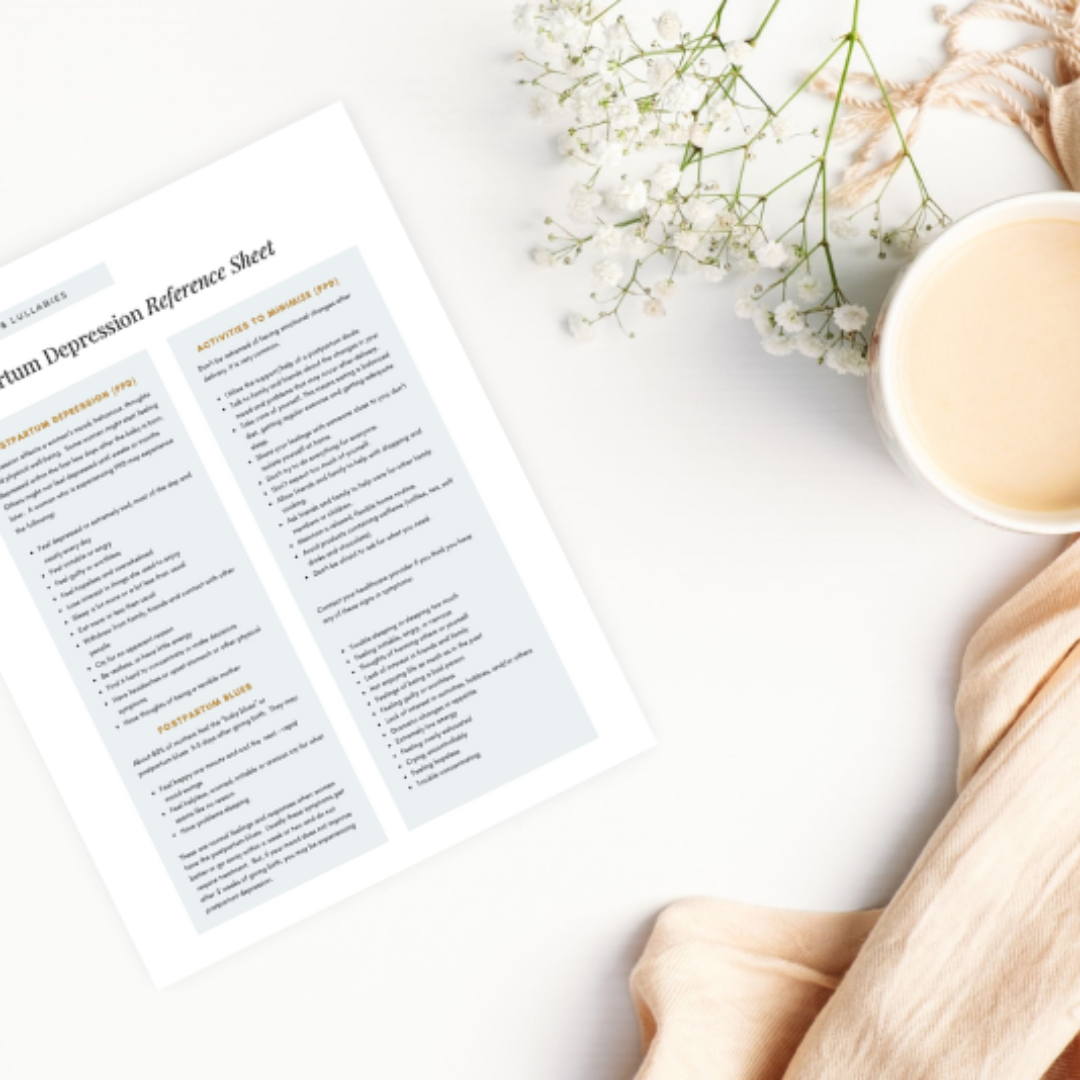
For years, pregnant women have been told that flying is not safe during their first trimester. But is this really true? Or are there ways to prevent any potential complications? In this blog post, we will explore the truth about flying during pregnancy and give you some tips on how to stay safe while traveling.
{We are a participant in the Amazon Services LLC Associates Program, an affiliate advertising program designed to provide a means for us to earn fees by linking to Amazon.com and affiliated sites. To learn more about affiliate links, click here!}

Flying in First Trimester: Is It Ok?
For pregnant women, flying during the first trimester is generally considered safe. However, there are a few things to consider before booking a flight. First, pregnant women are more likely to experience nausea and vomiting during the first trimester, so it’s important to make sure you’re feeling up for travel. Second, you’ll want to be aware of the risk of pregnancy complications such as miscarriage and ectopic pregnancy. According to the American College of Obstetricians and Gynecologists, the risk of these complications is highest during the first trimester. If you’re pregnant and thinking about flying, be sure to talk to your doctor first to make sure it’s the right decision for you.

Considerations When Flying for Pregnant Women
For most pregnant women, flying is perfectly safe. However, there are a few things to keep in mind when planning to fly during pregnancy.
First, pregnancy complications can occasionally make flying unsafe. If you have any concerns, be sure to check with your health care provider before booking a flight.
Second, even healthy pregnancies can come with some unpleasant side effects like nausea and fatigue. Taking a long flight while feeling nauseous or exhausted is no fun for anyone, so it’s important to make sure you’re feeling up to it before you board the plane.
Finally, remember that flying can be dehydrating, so it’s important to drink plenty of water before, during, and after your flight. By following these simple tips, you can ensure that your next flight is as smooth and comfortable as possible.

Tips for Air Travel During Pregnancy
For many women, the thought of flying while pregnant is enough to make them break out in a cold sweat. After all, there are so many things that can go wrong. But with a little planning and preparation, air travel during pregnancy can be relatively smooth sailing. Here are a few tips to keep in mind:
Get an Aisle Seat:
This will give you more room to move around and make trips to the bathroom.
Make sure you have travel insurance
This will give you peace of mind in case anything does go wrong.
Travel in the 2nd Trimester
Try to travel during the second trimester if possible. This is generally the safest and most comfortable time for pregnant women.
Avoid Gassy Foods
It’s not just your imagination – being pregnant does make you gassier than usual. To avoid embarrassing yourself (and your fellow passengers), steer clear of foods that are known to cause bloating, such as Brussels sprouts, beans, and broccoli. Instead, opt for lighter fare that won’t leave you feeling bloated and uncomfortable.
Avoid Carbonated Drinks
Just like gas-producing foods, carbonated beverages can also cause bloating and discomfort. So instead of that soda or sparkling water, stick to plain old H20.
Wear Support Stockings
They may not be the most stylish item in your wardrobe, but they can help to reduce swelling in your legs and feet. Plus, they’ll make it more comfortable to walk through the airport.
Dress in Loose-Fitting Clothing
You’re going to be sitting for a long time, so you might as well be comfortable. Loose-fitting clothing will also help you to avoid any unwanted wardrobe malfunctions.
Carry On Only What You Need
The last thing you want is to have to lug a heavy suitcase through the airport. So pack light and only bring carry-on luggage.
Drink Plenty of Water
It’s important to stay hydrated during pregnancy, and that includes during air travel. drink plenty of water throughout the flight, and avoid alcohol altogether.
Get Up and Move Around
Every hour or so, get up and stretch your legs. This will help to keep your blood flowing and prevent discomfort.
Wear Comfortable Shoes
Again, comfort is key when flying while pregnant. Wear shoes that are easy to slip on and off so you can take them off during security screenings. And avoid heels or any other uncomfortable shoes.
Bring snacks
Airport food can be expensive, and it’s not always the healthiest option. So bring your own snacks to tide you over until you reach your destination.
Flying while pregnant doesn’t have to be a stressful experience. By following these simple tips, you can ensure a smooth and comfortable flight.

More Travel Tips for Pregnancy
There’s no need to put your travel plans on hold just because you’re pregnant. With a little planning and common sense, you can still enjoy the trip of a lifetime. Here are a few tips to help you travel safely during pregnancy:
First, make sure you have comprehensive health insurance that will cover you in case of any complications. Pregnant travelers should also consult with their health care provider before traveling, and make sure they have all the necessary health records with them.
Second, take extra care to stay healthy while on the road. Pregnant women are more susceptible to illness, so be sure to eat healthy meals, get plenty of rest, and drink plenty of fluids. If possible, avoid traveling during peak illness seasons such as winter and summer.
Third, be prepared for changes in your plans. Unfortunately, pregnancy often comes with unpredictable physical changes that can impact your travel plans. Make sure you have a flexible itinerary and are prepared to change your plans at a moment’s notice.
Drink plenty of water. Dehydration can cause pregnancy complications, so it’s important to stay well hydrated. Be sure to drink only bottled water or filtered water, and avoid tap water completely.
Stay close to medical help. If possible, choose a destination that is close to a hospital or medical clinic. This way, if you experience any problems during your trip, you can get help quickly.
Take your time. Pregnancy can be exhausting, so don’t try to do too much. Take breaks often, and plan for plenty of rest time each day.
By following these simple tips, you can travel safely and enjoyably during pregnancy. Bon voyage!

If you experience any of the following symptoms during or after a flight, it’s important to seek medical attention: shortness of breath, chest pain, swelling in the legs or feet, fainting, or unusual fatigue.
Complications To Watch For While Traveling During Pregnancy
There’s nothing quite like the excitement of planning a pregnancy-safe vacation. But as any seasoned traveler knows, there are always a few potential complications to watch out for. Here are a few things to keep in mind if you’re pregnant and planning to hit the road:
Seek Emergency Medical Care If You Experience…
- Severe Vomiting: Persistent vomiting can lead to dehydration, which can be dangerous for both you and your baby. If you can’t keep anything down, seek medical care immediately.
- Fever: A fever during pregnancy can be a sign of infection, which can be dangerous for both you and your baby. If you develop a fever while traveling, seek medical care right away.
- Severe pain: Severe abdominal or pelvic pain can be a sign of a serious problem, such as an ectopic pregnancy or placental abruption. If you experience severe pain while traveling, seek medical care immediately.
- Severe Headache: A severe headache can be a sign of preeclampsia (severely high blood pressure), a potentially dangerous condition that can occur during pregnancy. If you experience a severe headache, seek medical care right away.
- Pain &/Or Swelling In Your Legs: This can be a sign of deep vein thrombosis (DVT), a potentially dangerous condition that can occur during pregnancy. If you experience pain or swelling in your legs, seek medical care right away.
These are just a few potential complications to watch out for while traveling during pregnancy. Remember, if you have any concerns at all, don’t hesitate to seek medical care. Better safe than sorry!

Reasons To Avoid Traveling While Pregnant
While there are plenty of good reasons to travel while pregnant, there are also a few potential risks to consider. Here are a few things to keep in mind before you hit the road:
You May Be at Higher Risk for Infection:
Pregnant women are more susceptible to infection, so it’s important to take extra care to avoid exposure to germs. If possible, avoid traveling during peak illness seasons such as winter and summer.
You May Experience Changes in Your Plans:
Unfortunately, pregnancy often comes with unpredictable physical changes that can impact your travel plans. Make sure you have a flexible itinerary and are prepared to change your plans at a moment’s notice.
You May Feel More Tired Than Usual:
Pregnancy can be exhausting, so don’t try to do too much. Take breaks often, and plan for plenty of rest time each day.
You May Be A High-Risk Pregnancy:
If you have a high-risk pregnancy, your doctor may advise against travel. Be sure to check with your doctor before making any travel plans.
You May Experience Unpleasant Pregnancy Symptoms:
Traveling while pregnant can exacerbate common pregnancy symptoms such as nausea, vomiting, and fatigue. If you’re not feeling up to traveling, it’s probably best to stay home.

FAQs About Flying In Pregnancy
Flying while pregnant might seem like a daunting prospect, but with a little bit of planning, it can be a breeze. Here are a few frequently asked questions that can help put your mind at ease.
Q- Can I fly during pregnancy?
As long as you have a healthy pregnancy, flying should pose no problem. However, it’s always a good idea to check with your doctor before booking a flight.
Q- How far along in my pregnancy can I fly?
Most airlines allow pregnant women to fly up to 36 weeks of pregnancy. After that point, you’ll need a doctor’s note confirming that it’s safe for you to travel.
Q- Can I fly if I’m having twins?
Yes, but most airlines limit pregnant women with twins to 32 weeks of pregnancy. You’ll also need a doctor’s note confirming that it’s safe for you to travel.
Q- When Should I Stop Traveling During Pregnancy?
Most experts recommend avoiding travel in the last month of pregnancy to reduce the risk of preterm labor. If you must travel during this time, be sure to have a plan in place in case you go into labor while on the road.
Q- How Should I Prepare for a Trip During Pregnancy?
There are a few things you can do to prepare for a trip during pregnancy:
– Get travel insurance that covers pregnancy complications.
– Choose a comfortable destination and accommodation.
– Pack light and bring plenty of snacks and water.
– Wear loose, comfortable clothing.
– Bring your prenatal records in case you need medical care while on the road.
Q- Can I Fly In The First 12 Weeks of Pregnancy?
Flying in the first trimester is generally considered safe, but you should check with your doctor before booking a flight. The main risk during this time is dehydration, so make sure to drink plenty of water both before and during your flight. Other than that, the risks are generally low.
Q- Will Flying in the 1st Trimester Cause a Miscarriage?
The risk of miscarrying after flying in the first trimester is very low. In most cases, miscarriage is caused by a chromosomal abnormality that is not related to flying.
Q- How can I make flying during pregnancy safer?
Check with your healthcare provider before booking your flight. They can help you determine if flying is safe for you and your baby.
Choose an airline that offers pregnant passengers special assistance, such as early boarding or priority seating.
Dress comfortably for your flight, and wear loose-fitting clothing to avoid swelling.
Stay hydrated by drinking plenty of fluids.
Get up and move around every few hours to avoid blood clots.
Listen to your body, and if you experience any pain or discomfort, let a flight attendant know right away.
Q- What are the symptoms of flight-related illness in pregnancy?
While the vast majority of pregnant women will have no problems with flying, there are a few conditions that can be exacerbated by the changes in cabin pressure and air quality.
If you experience any of the following symptoms during or after a flight, it’s important to seek medical attention: shortness of breath, chest pain, swelling in the legs or feet, fainting, or unusual fatigue.
Although these symptoms can be benign, they can also be indicative of more serious problems like deep vein thrombosis or pulmonary embolism.
Q- How can I avoid getting sick while flying during pregnancy?
First, make sure to drink plenty of fluids. Airplane cabins are very dry, so it’s important to stay hydrated. Second, avoid touching your face. There are all sorts of germs on airplane tray tables and armrests, so it’s best to keep your hands away from your eyes, nose, and mouth. Finally, take some preventative measures before you fly. Get a flu shot and pack some hand sanitizer in your carry-on bag.
Q- Should I consult with my doctor before flying during pregnancy?
If you’re pregnant and planning to fly, you might be wondering if you need to consult with your doctor first. The answer is, that it depends. If you have a high-risk pregnancy, it’s a good idea to check with your doctor before booking a flight. However, if you’re healthy and your pregnancy is low-risk, flying is generally considered safe.
Of course, there are always risks involved when traveling by plane, so it’s important to be aware of the potential risks before you take off. The good news is that most pregnant women experience no problems when flying. So whether you’re headed for a babymoon or just visiting family, make sure to do your research and travel safely.
Hopefully, these tips have helped to put your mind at ease about flying during pregnancy. Remember, as long as you take a few precautions and check with your doctor, flying should pose no problem. Safe travels!
More Posts You’ll Love…
- Ultimate First Trimester Of Pregnancy Checklist
- 40 First Grandchild Pregnancy Announcement Gifts & Ideas
- The Best Push Presents for New Moms
- A Second Trimester To Do List
- When To Start Wearing Maternity Clothes
- When To Have A Baby Shower
- The Best Virtual Baby Shower Games
- Signs That Labor 24-48 Hours Away
- Hospital Bag Checklist 2022- The Ultimate Guide
- When To Start Buying Baby Stuff
- What The Hospital Provides After Birth
- 50+ Pregnancy Announcement Ideas: How To Tell Your Husband You’re Pregnant











